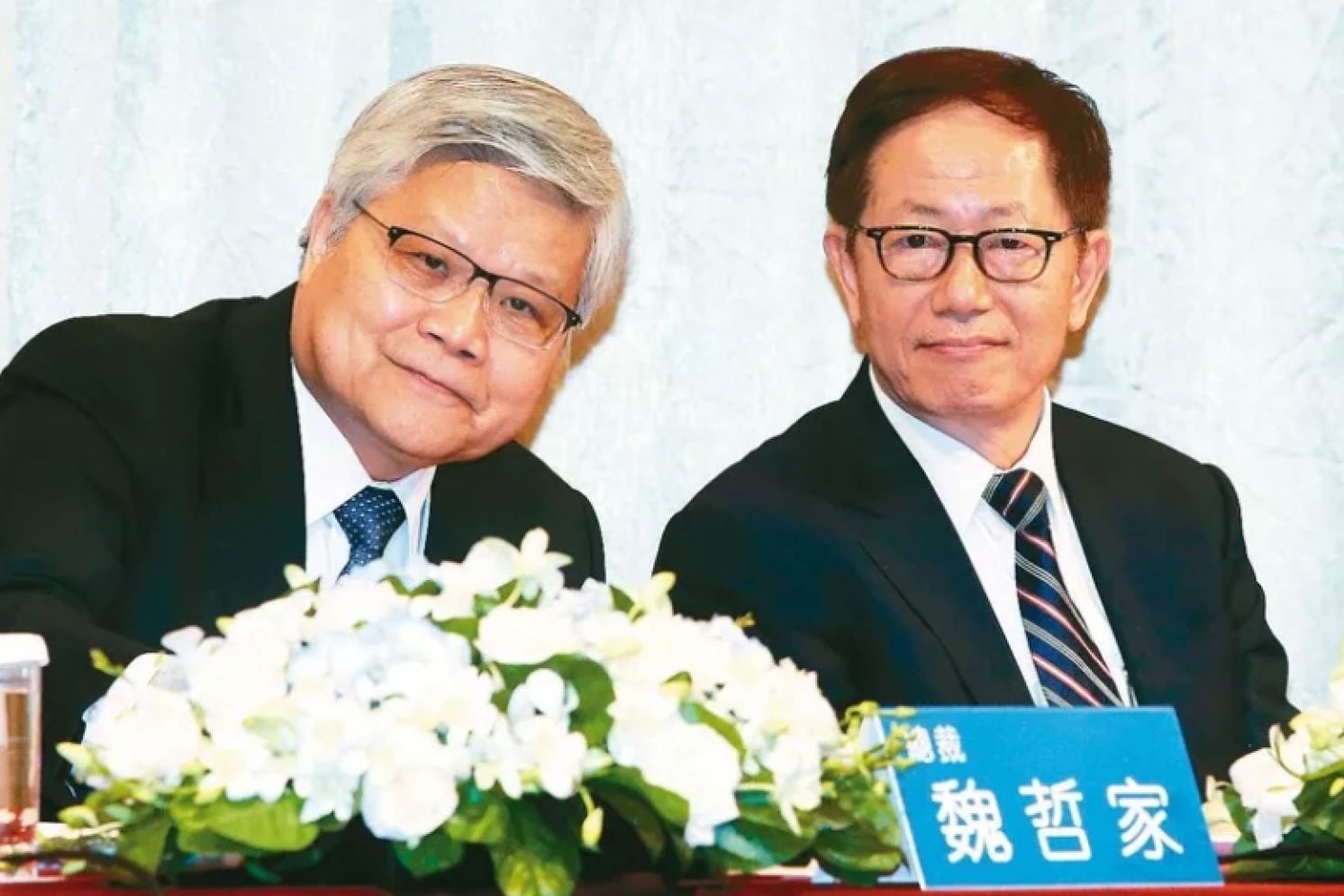
TSMC Enters Post-Liu Era:Wei to Take Over the Baton, Affecting U.S. 3nm and Kumamoto Fab Investments
United Daily News, December 19, 2023
In a significant move, Chairman Mark Liu of the Taiwan Semiconductor Manufacturing Company (TSMC) has declared that he will not participate in the next board director nomination and will retire after the shareholder meeting next year. The TSMC's "Nomination and Corporate Governance and Sustainability Committee" recommended that Vice Chairman C. C. Wei succeed as the next chairman, with the election results of the next board meeting in June next year being the main deciding factor. This marks another leadership transition in TSMC, following the retirement of founder Morris Chang five years ago.
According to a close associate of Liu, having served at TSMC for over 30 years, Liu has decided to step down at a time when the global strategy is on track. The opening ceremony for TSMC's Kumamoto factory in Japan is scheduled for February next year, and the Arizona plant is set to start commercial operations in 2025. With budgetary subsidies for the German factory resolved, Liu believes it's an opportune moment to pass the torch to Wei.
Following the model set by Chang to announce retirement plans in advance, Liu stated that this decision allows the company to proceed with the selection of new directors and succession planning.
Liu, who joined TSMC in 1993, took over as chairman in June 2018 after Chang's retirement, with Wei named as president and CEO. During Liu's chairmanship, he emphasized the company's commitment to its mission and focused on strengthening corporate governance and global competitiveness, especially in technology leadership, digital excellence, and global expansion.
In a statement released through TSMC today, Liu expressed gratitude for the extraordinary journey of contributing to TSMC over the past 30 years. He thanked the talented team for building the company into an industry benchmark and considered his role as chairman after the retirement of the legendary founder a great honor. Liu now hopes to retire, spend more time with family, and embark on a new chapter in life, but plans to continue giving back to the semiconductor industry in different ways. He pledged to continue working with the board on corporate governance until the end of his term, expressing full confidence that TSMC will continue to achieve outstanding performance in the foreseeable future.
Wei May Serve as President and CEO Concurrently: Two-version Board Arrangements
With Liu deciding to retire next year, the market anticipates a series of changes at TSMC's shareholder meeting next year. Firstly, after assuming the role of chairman, it is expected that Wei will continue to serve as president and CEO. If this plan materializes, Wei will become the second person at TSMC to simultaneously hold both positions since its founding, marking a significant consolidation of power at the semiconductor giant.
The reasoning behind this arrangement is speculated to be linked to TSMC's overseas expansion plans. These include ongoing projects at TSMC's Arizona Fab (3nm) and Kumamoto Fab (7nm or 6nm) and the initiation of TSMC's first new fab in Germany. All these endeavors are overseen and executed by Wei. It is anticipated that after assuming the chairmanship next year, having Wei also serve as CEO will be the best arrangement to ensure the continuity of these investment projects.
Next year, TSMC's board of directors, in addition to Liu stepping down as chairman, is rumored to see the retirement of Director F. C. Tseng. Therefore, after Liu's retirement, the reshuffling of TSMC's board members is imminent.
There are currently two speculated versions. Firstly, if only Liu's directorial position needs to be filled, it's likely that Senior Vice President Wei-Jen Lo, who had also applied for retirement and is currently in charge of TSMC's research and development, might take on the role of consultant and join the board of directors. This would assist in the seamless continuation of TSMC's core R&D efforts, preventing potential talent poaching.
The second version considers the simultaneous retirement of Tseng. In this case, it is possible to bring in a business executive familiar with the Japanese market to fill the vacant directorial position. The potential candidate could be a high-ranking executive from Sony, a strategic partner of TSMC. This move would aid TSMC's ongoing expansion efforts in Japan.
The new era of leadership changes at TSMC has been met with reassurance from the TSMC supply chain, indicating while a shift in power is inevitable, this adjustment has no operational impact, with business operations continuing as usual under existing protocols.
Within investment circles, the focus seems to be on how TSMC can ensure its future long-term gross profit margin remains stable at 53 percent, amid concerns that overseas expansion might drag down operational performance.
Senior semiconductor analyst Lu Hsing-Chi offered three recommendations: "Delay U.S. plant investment until U.S. subsidies are confirmed," "If capital expenditure growth slows down next year, continue to increase cash dividends to a reasonable level," and "Request the financial department to control the continuous increase in the overall debt ratio, control the risk of significantly investing in American investment bank corporate bonds and industrial bonds to earn yield spreads, and protect investors."
Liu's retirement statement revealed TSMC's commitment to continued outstanding performance in the visible future. However, the future under the leadership of Wei at TSMC remains to be seen and is eagerly awaited.